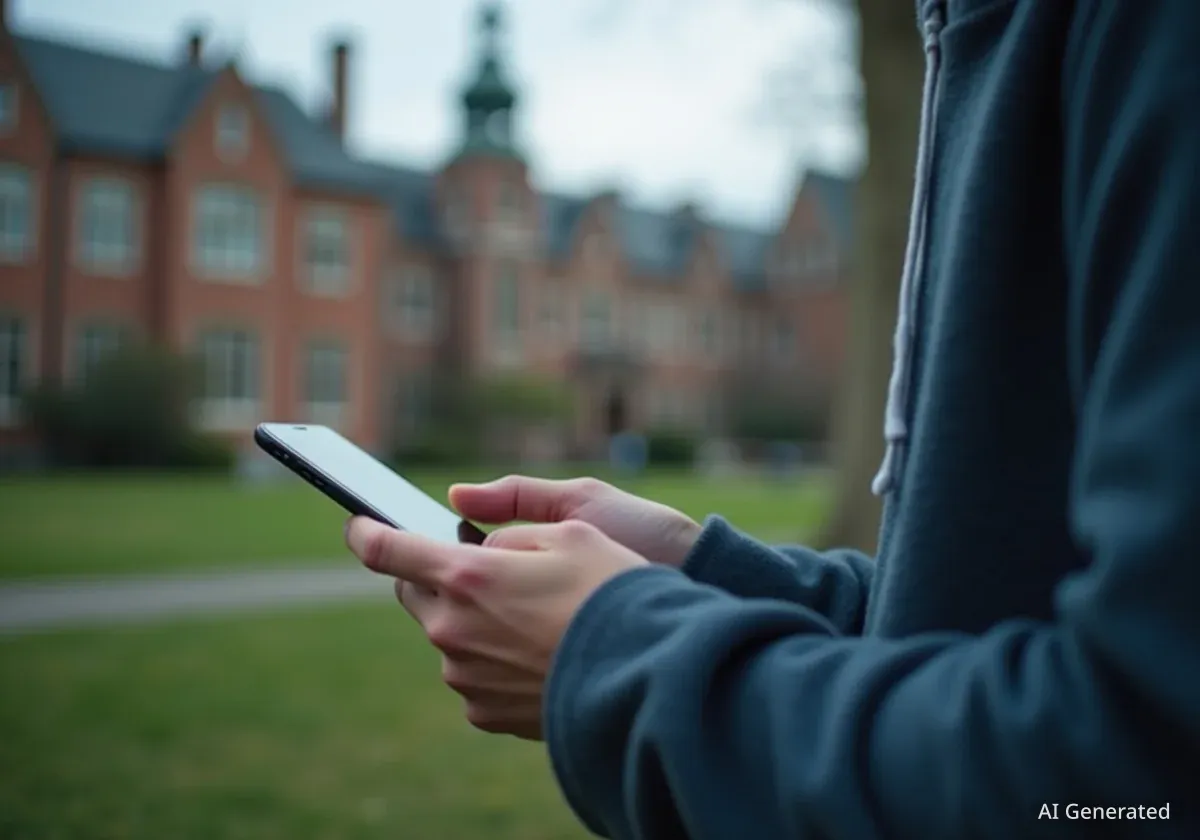Internal emails have revealed that several universities in the United Kingdom offered to monitor students' social media accounts and online chat groups for major arms companies. The correspondence shows institutions reassured defense firms concerned about campus protests by agreeing to track student activities ahead of career fairs and other events.
Key Takeaways
- Emails obtained through Freedom of Information requests show universities corresponding with arms firms about monitoring student protests.
- Loughborough University offered "active monitoring of social media" to provide intelligence on potential demonstrations against Rolls-Royce.
- Heriot-Watt University appeared to agree to a request from Raytheon UK to "monitor university chat groups."
- A national university security group, Aucso, coordinated efforts to monitor social media to prevent protests at career events.
- Student unions and civil liberties groups have condemned the practice as a form of surveillance on peaceful protest.
Universities Offered Monitoring Services to Defense Contractors
Documents obtained by Liberty Investigates and the Guardian show a pattern of cooperation between UK universities and defense companies. The firms, including Rolls-Royce, Raytheon UK, and BAE Systems, expressed concerns about potential student protests, particularly those related to the conflict in Gaza.
In response, several institutions offered assurances that involved tracking student communications. This has raised significant concerns among student groups and academic unions about freedom of speech and the surveillance of students on campus.
Loughborough University and Rolls-Royce
At Loughborough University, an email exchange with a recruitment firm organizing a careers event for Rolls-Royce detailed the university's security measures. The university stated its team was conducting "active monitoring of social media … to provide early intelligence about protests."
The email explained this was necessary because "protest has been a concern for employers in recent times."
A spokesperson for Loughborough University stated, "We observe the group’s public feed occasionally so as to forewarn those who may be affected in advance of any protests. We are unapologetic for this. We do not surveil students’ social media."
The university cited previous masked protests by Loughborough Action for Palestine (LAFP) that it claimed made some students feel unsafe. In response, LAFP said it was "extremely concerned but unsurprised" that peaceful protests were being used to "justify surveillance of students by university management." Rolls-Royce declined to provide a comment on the matter.
The Rise of Campus Protests
Over the past two years, university campuses across the UK have seen a significant increase in pro-Palestinian activism. Students have organized large-scale demonstrations and targeted careers fairs to protest companies with links to the Israeli government, leading to heightened security concerns from corporate recruiters.
Widespread Coordination and Company Requests
The practice of monitoring students appears to be part of a broader, coordinated effort. The Association of University Chief Security Officers (Aucso), which represents security staff at over 140 universities, outlined a strategy to manage campus protests.
According to notes from a presentation, Aucso members "monitor[ed] media/social media" and used bodycams to record video for potential "legal/disciplinary proceedings." The stated goal was to prevent protests from "affecting our students’ career advancement."
Heriot-Watt, Glasgow, and Cardiff Universities
Other institutions also engaged in similar communications with defense firms:
- Heriot-Watt University: Emails suggest the university agreed to "implement the measures you have suggested" after Raytheon UK asked it to "monitor university chat groups" before a campus visit. A university spokesperson "strongly refuted" claims it monitored private correspondence, but did not explain the email's content.
- University of Glasgow: This institution was asked by a defense company to complete a "security questionnaire" that included a question about whether it was "aware of any social media protests posts or videos."
- Cardiff University: In February 2024, the university moved a careers event with BAE Systems online after staff identified a social media post calling for a protest. A spokesperson said this was part of "day-to-day media monitoring" and rejected the term "surveillance."
Disciplinary Actions Against Activists
Data compiled by Liberty Investigates shows that between October 2023 and March 2025, nearly one in four UK universities (37 out of 154) initiated disciplinary investigations into students and staff involved in pro-Gaza activism. These actions affected up to 200 individuals.
Reaction from Academic and Civil Liberties Groups
The revelations have drawn sharp criticism from organizations representing university staff and students. They argue that monitoring students who are exercising their right to peaceful protest is a dangerous overreach that stifles free expression.
Jo Grady, the general secretary of the University and College Union (UCU), voiced strong opposition to the universities' actions.
"It is utterly shameful that so many universities have spent time and resources surveilling students who are engaged in peaceful protest against a genocide, and that some have seemingly done so on the say-so of defence companies," Grady stated. She added that student protesters "should be supported by their universities, not surveilled by them."
The companies involved, including Raytheon and Leonardo, were approached for comment but declined. BAE Systems stated that it does not directly sell weapons to Israel but confirmed that its components are part of a global supply pool for F-35 jets that Israel can access. The company declined to comment further on its security arrangements with universities.
The ongoing situation highlights a growing tension on UK campuses between corporate partnerships, student activism, and the fundamental principles of free speech and privacy within higher education institutions.





